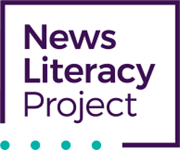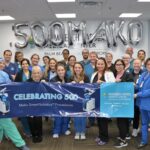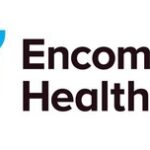New, free lesson empowers users with news literacy skills essential to staying well
WASHINGTON, D.C., Sept. 26, 2022 — The nonpartisan nonprofit News Literacy Project today unveiled a new online lesson that teaches people how to discern fact from fiction in health and wellness news. “Be Health Informed” empowers students and the public to identify credible medical information and avoid being misled.
“Be Health Informed” is available on Checkology®️ virtual classroom, NLP’s free, browser-based platform. In short, engaging videos, users learn to spot red flags that often accompany health misinformation and to recognize content based on evidence and testing, not feelings and intuition.
“Digital and social media has deeply affected the way people inform themselves and make decisions about their health. The proliferation of misinformation — including wellness pseudoscience, conspiracy theories and anti-vaccination propaganda — poses a significant threat to public health,” said Peter Adams, NLP’s senior vice president of research and design. “But we also know that news literacy skills, the ability to identify credible news and information, can help people avoid these pitfalls and make informed decisions about their wellness.”
Real-world examples are used throughout, pulled from social media platforms including TikTok and Instagram, as well as from historical events and current topics, such as the COVID-19 pandemic.
The lesson also addresses why some people are more vulnerable to health misinformation, with frank discussions of how racism, medical exploitation, and the high cost and lack of access to care in disenfranchised communities drive a distrust of the healthcare system.
“COVID-19 has been devastating to everyone, especially to those who are poor and of color, and who have had legitimate reasons for mistrust of systems that impact our health. This mistrust, coupled with widespread and targeted misinformation, influenced people’s decisions to use COVID mitigation strategies,” said the lesson host, Dr. Melissa Clarke, the former assistant dean of the Howard University College of Medicine and CEO of the Be Health Empowered Group. “Participating in this vital project allowed me to help strengthen our community defenses against the spread of misinformation and disinformation when it comes to our health.”
The lesson was developed with input from experts at Brown, Duke and McGill universities, as well as the American Medical Association, the BHE Group, the U.S. Centers for Disease Control and Prevention and the Norwegian Institute for Public Health.
“For more than two years, physicians have fought twin pandemics of COVID-19 and medical misinformation,” said AMA President Jack Resneck Jr., M.D. “The mistrust of medicine sown by misinformation, social media influencers, and even, in the worst-case scenarios, health care professionals has led to decreased vaccination rates, a far higher death rate in the U.S. from COVID-19 compared to other well-resourced countries, and most recently, a state of emergency in New York over polio. This lesson is critical to rebuilding trust in science and medicine as we redouble our efforts to improve the health of the nation.”
“Be Health Informed” is part of a trio of new STEM-aligned lessons on Checkology that support understanding of science and math principles through contemporary issues such as climate change, scientific misinformation and pseudoscience.
About the News Literacy Project
The News Literacy Project, the leading provider of news literacy education, is a nonpartisan nonprofit that is building a national movement to advance the practice of news literacy throughout American society, creating better informed, more engaged and more empowered individuals — and ultimately a stronger democracy.


























